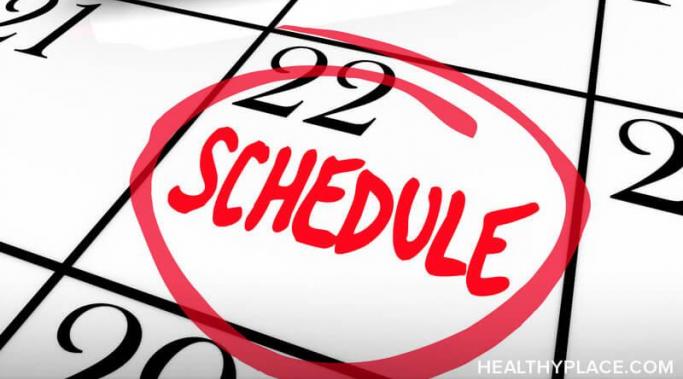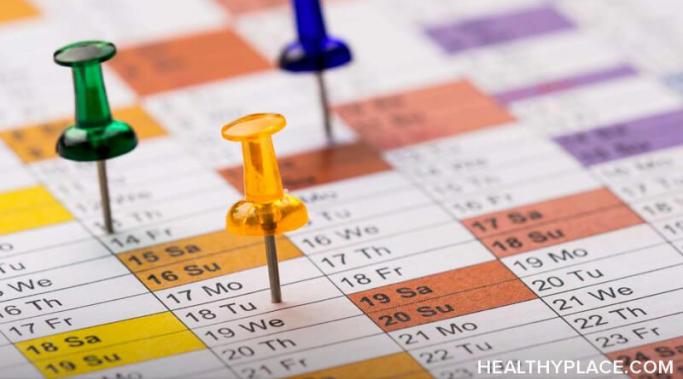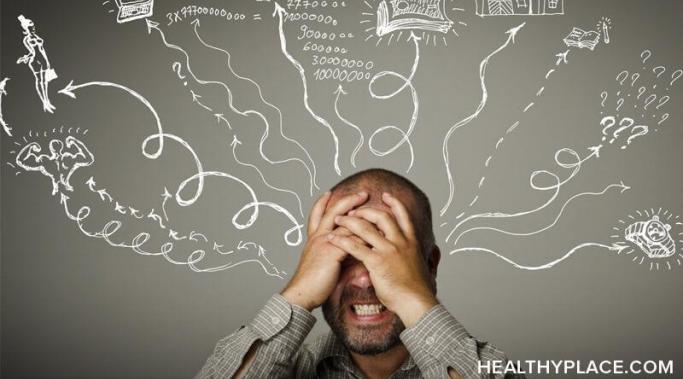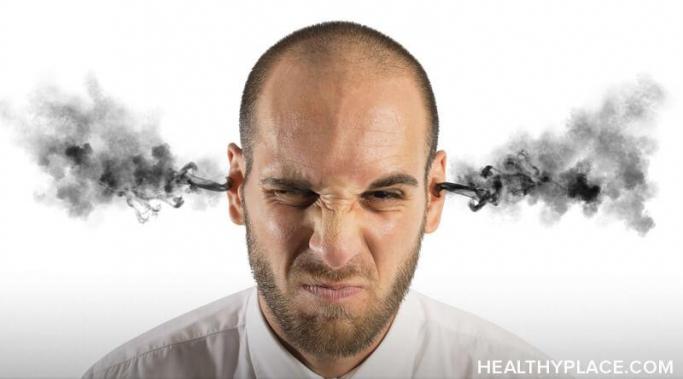I've often felt left out of life. In fact, I often say I'm an alien. It's not because I'm green or have bug eyes; it's because my experience of life is so radically different from that of your average person. I'm obviously not the only one. People with serious mental illness (or other chronic illnesses) often feel left out of life. I'm going to take a look at why this is and how we can feel more included.
Impact of Bipolar
When I started seeing a psychiatrist, he said I would get back to life before bipolar disorder (well, I was diagnosed with just depression at the time). He focused on it a lot. He wanted to know how I was doing compared to what I was like "before." But there are so many problems with that thinking. I'm not sure you can ever get back to life before bipolar disorder.
I've recently undergone a routine change with my bipolar disorder. This has been harder to adapt to than you might think. I find doing the same thing every day has a protective effect on bipolar disorder, so removing that rhythm can do the opposite. A change in my bipolar routine has officially thrown me off my game.
I have a bipolar routine that I adhere to pretty rigidly. This is important for my mental wellness. However, I know that one reason some people don't want a bipolar routine is because they fear the rigidity that can come with it. I can understand that, so let's take a look at bipolar routines and their rigidity.
I have found that being too overwhelmed can lead to a loss of executive function. Basically, my head gets filled with life's troubles and illness, and then it can't think complicated thoughts. That's the crux of it. The thing is, complicated thoughts like those involved in planning and problem-solving are pretty crucial for getting through your day. So, how do we deal with the effects of overwhelm on executive function?
I first heard the term "crowded thoughts" years ago. This term made, perhaps, even more sense to me than "racing thoughts," which is an official symptom of bipolar hypomania. So, let's take a look at what crowded thoughts are, how they may manifest in bipolar disorder, and why they matter.
While suicidality is often driven, at least in part, by lifestyle factors, a person with a good life can still be suicidal. This doesn't make sense to many people. How can someone with an objectively good life feel like they want to die? The answer to that is simple and complex. A person with a good life can be suicidal because of the brain.
Dating with an invisible illness has its pitfalls. When do you tell someone about your illness? When do you explain the impacts your illness has on your life? How do you try to make an invisible illness visible to the person you're dating? My own forays into the dating pool have been making me think about just these questions.
I talk to myself all the time. In fact, I don't think I know anyone who talks to themselves more than I do. It's an incessant, running commentary on my existence. It's like I have my own narrator — but not only are they saying what's happening, but they're commenting on it, too. The question is, if I talk to myself, is this a part of bipolar disorder?
Insomnia is common in bipolar disorder. Sleep changes (which can be insomnia or hypersomnia [oversleeping]) are noted in the symptoms of major depressive disorder, which is part of bipolar disorder. In fact, I would wager that without medication, every person with bipolar disorder would have sleep problems. In my case, I have insomnia with my bipolar disorder and have had it for three years. But last night, I was lucky. Last night I managed to sleep almost eight hours (interrupted, but still). So, why don't I feel any better?









